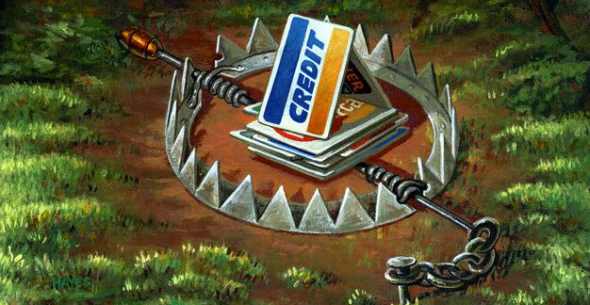August 21, 2012
Surely the Feds are right … that kind of talk is crazy, right?
Maybe. But many of the 9/11 Commissioners themselves don’t buy what the government says about 9/11, they say that the government has covered up the state sponsorshipof the 9/11 hijackers, and Al Qaeda flying planes into the World Trade Center and Pentagon was entirely foreseeable .
Indeed, while they obviously haven’t said that the government was involved, 9/11 Commissioners have said we need further investigation and that the American people should question 9/11. Does that mean they should they be committed to the same psych ward which Mr. Raub and Ms. Swinney enjoyed? Of course not.
Some people believe that 9/11 was wholly unforeseeable. Others believe that government personnel were criminally negligent in letting 9/11 happen, and then obstructed justice to cover it up. See this, this,this, this, and this. Still others believe that rogue government personnel allowed 9/11 to happen, or even played a role in the attacks themselves.
Whatever one believes about 9/11, isn’t our society built on freedom of speech? And if someone has kooky theories, won’t the scientific method and free debate defeat the baseless theories? Isn’t that what modern society is all about?
Raub’s attorney – the head of the non-partisan civil rights law firm The Rutherford Institute – points outthat Raub is being indefinitely detained, and says:
For government officials to not only arrest Brandon Raub for doing nothing more than exercising his First Amendment rights but to actually force him to undergo psychological evaluations and detain him against his will goes against every constitutional principle this country was founded upon. This should be a wake-up call to Americans that the police state is here.”
What Do Mental Health Professionals Say About Those Who Question 9/11?
Many sociologists and mental health professionals say that those who believe the official version without any questioning are the ones suffering from psychological defense mechanisms.
Sociologists say that fear of terrorism has made people blindly accept false justifications for war – including the false claim that Saddam had a hand in 9/11 (when even the 9/11 Commission says he didn’t).
And the following mental health professionals say that questioning the government’s cut-and-dried version of 9/11 is the sane thing to do:
Associate Professor Emeritus of Psychiatry, Harvard Medical School, Lester Grinspoon, MD
Associate Clinical Professor of Psychiatry and Behavioral Sciences, Duke University Medical Center, as well as Radiology, at Duke University Medical Center D. Lawrence Burk, Jr., MD
Board of Governors Distinguished Service Professor of Psychology and Associate Dean of the Graduate School at Rutgers University Barry R. Komisaruk
Distinguished Professor in the Department of Mental Health Law and Policy, Professor of Medicine in the Department of Internal Medicine and Distinguished Professor of Global Health in the College of Public Health, University of South Florida, Michael D. Knox
Clinical Associate Professor of Psychiatry, Robert Wood Johnson Medical School, University of Medicine and Dentistry of New Jersey Laura Schafer
Professor of Psychology, Rutgers University Alan Gilchrist
Professor Emeritus, Psychology and Neuroscience, Beckman Institute, University of Illinois at Urbana-Champaign Michael Gabriel
Former Chief Mental Health Coordinator and Director of Manpower Development and Training, Massachusetts Department of Mental Health, and Lecturer in Psychology, Boston University Herbert Hoffman
Professor of Psychology, University of Chicago and Northwestern University Jack Sawyer
Professor of Psychology at University of New Hampshire William Woodward
Professor of Psychology at University of Essex Philip Cozzolino
Professor of Psychology at Goddard College Catherine Lowther
Professor Emeritus of Psychology at California Institute of Integral Studies Ralph Metzner
Professor of Psychology at Rhodes University Mike Earl-Taylor
Professor of Psychology at Oxford University Graham Harris
Professor Emeritus, Psychology, University of Marburg Gert Sommer
Professor of Psychology, University of Tennessee at Chattanooga Ralph Hood
Assistant Professor of Psychiatry, Jefferson Medical College. Former Major, U.S. Army Medical Corps, Vietnam Veteran 7 years service, Jon Bjornson, MD
Ph.D. Clinical Neuropsychologist Richard Welser
Trauma specialist Danielle Duperret, Ph.D.
Psychiatrist Carol S. Wolman, MD
Psychiatrist E. Martin Schotz
Ph.D. in Clinical Psychology from the University of Nebraska and licensed Psychologist Ronald Feintech
PhD in clinical psychology from Texas Tech Michael Green
PhD in educational psychology Brent Igo
PhD psychologist Paul Johansson
PhD psychologist Gail Maudal
PhD psychologist Robert Hopper
Ph.D Psychologist Dorothy Lorig
Psychologist Robert Griffin
There are many other mental health professionals who agree.
Why Are Some Psychologists So Dogmatic?
Russian psychiatrists famously aided Stalin in applying fake insanity diagnoses to political dissenters.
Similarly, American apologists for the powers-that-be are eager to label anyone “taking a cynical stance toward politics, mistrusting authority, endorsing democratic practices, … and displaying an inquisitive, imaginative outlook” as worthy of a trip to the insane asylum. (Those traits may also get one labeled as a potential terrorist.)
But most mental health professionals who assume that those who question 9/11 are crazy are simply victims of the the “Martha Mitchell Effect”:
The process by which a psychiatrist, psychologist, or other mental health clinician mistakes the patient’s perception of real events as delusional and misdiagnoses accordingly.
The authors of a paper on this phenomenon (Bell, V., Halligan, P.W., Ellis, H.D. (2003) Beliefs About Delusions. The Psychologist, 6 (8), 418-422) conclude:
Sometimes, improbable reports are erroneously assumed to be symptoms of mental illness [due to a] failure or inability to verify whether the events have actually taken place, no matter how improbable intuitively they might appear to the busy clinician.
In other words, psychologists who haven’t taken the time to examine for themselves the claims of their patients will tend to label as delusional anything which they “intuitively” feel is improbable.
As such, psychologists and psychiatrists are just as prone to acting out their irrational prejudices as anyone else … unless they take the time to investigate and educate themselves.
Postscript: We do not condone violence. Virtually all those who question the government’s version of 9/11 are peaceful, non-violent folks.
Indeed, while they obviously haven’t said that the government was involved, 9/11 Commissioners have said we need further investigation and that the American people should question 9/11. Does that mean they should they be committed to the same psych ward which Mr. Raub and Ms. Swinney enjoyed? Of course not.
Some people believe that 9/11 was wholly unforeseeable. Others believe that government personnel were criminally negligent in letting 9/11 happen, and then obstructed justice to cover it up. See this, this,this, this, and this. Still others believe that rogue government personnel allowed 9/11 to happen, or even played a role in the attacks themselves.
Whatever one believes about 9/11, isn’t our society built on freedom of speech? And if someone has kooky theories, won’t the scientific method and free debate defeat the baseless theories? Isn’t that what modern society is all about?
Raub’s attorney – the head of the non-partisan civil rights law firm The Rutherford Institute – points outthat Raub is being indefinitely detained, and says:
For government officials to not only arrest Brandon Raub for doing nothing more than exercising his First Amendment rights but to actually force him to undergo psychological evaluations and detain him against his will goes against every constitutional principle this country was founded upon. This should be a wake-up call to Americans that the police state is here.”
What Do Mental Health Professionals Say About Those Who Question 9/11?
Many sociologists and mental health professionals say that those who believe the official version without any questioning are the ones suffering from psychological defense mechanisms.
Sociologists say that fear of terrorism has made people blindly accept false justifications for war – including the false claim that Saddam had a hand in 9/11 (when even the 9/11 Commission says he didn’t).
And the following mental health professionals say that questioning the government’s cut-and-dried version of 9/11 is the sane thing to do:
Associate Professor Emeritus of Psychiatry, Harvard Medical School, Lester Grinspoon, MD
Associate Clinical Professor of Psychiatry and Behavioral Sciences, Duke University Medical Center, as well as Radiology, at Duke University Medical Center D. Lawrence Burk, Jr., MD
Board of Governors Distinguished Service Professor of Psychology and Associate Dean of the Graduate School at Rutgers University Barry R. Komisaruk
Distinguished Professor in the Department of Mental Health Law and Policy, Professor of Medicine in the Department of Internal Medicine and Distinguished Professor of Global Health in the College of Public Health, University of South Florida, Michael D. Knox
Clinical Associate Professor of Psychiatry, Robert Wood Johnson Medical School, University of Medicine and Dentistry of New Jersey Laura Schafer
Professor of Psychology, Rutgers University Alan Gilchrist
Professor Emeritus, Psychology and Neuroscience, Beckman Institute, University of Illinois at Urbana-Champaign Michael Gabriel
Former Chief Mental Health Coordinator and Director of Manpower Development and Training, Massachusetts Department of Mental Health, and Lecturer in Psychology, Boston University Herbert Hoffman
Professor of Psychology, University of Chicago and Northwestern University Jack Sawyer
Professor of Psychology at University of New Hampshire William Woodward
Professor of Psychology at University of Essex Philip Cozzolino
Professor of Psychology at Goddard College Catherine Lowther
Professor Emeritus of Psychology at California Institute of Integral Studies Ralph Metzner
Professor of Psychology at Rhodes University Mike Earl-Taylor
Professor of Psychology at Oxford University Graham Harris
Professor Emeritus, Psychology, University of Marburg Gert Sommer
Professor of Psychology, University of Tennessee at Chattanooga Ralph Hood
Assistant Professor of Psychiatry, Jefferson Medical College. Former Major, U.S. Army Medical Corps, Vietnam Veteran 7 years service, Jon Bjornson, MD
Ph.D. Clinical Neuropsychologist Richard Welser
Trauma specialist Danielle Duperret, Ph.D.
Psychiatrist Carol S. Wolman, MD
Psychiatrist E. Martin Schotz
Ph.D. in Clinical Psychology from the University of Nebraska and licensed Psychologist Ronald Feintech
PhD in clinical psychology from Texas Tech Michael Green
PhD in educational psychology Brent Igo
PhD psychologist Paul Johansson
PhD psychologist Gail Maudal
PhD psychologist Robert Hopper
Ph.D Psychologist Dorothy Lorig
Psychologist Robert Griffin
There are many other mental health professionals who agree.
Why Are Some Psychologists So Dogmatic?
Russian psychiatrists famously aided Stalin in applying fake insanity diagnoses to political dissenters.
Similarly, American apologists for the powers-that-be are eager to label anyone “taking a cynical stance toward politics, mistrusting authority, endorsing democratic practices, … and displaying an inquisitive, imaginative outlook” as worthy of a trip to the insane asylum. (Those traits may also get one labeled as a potential terrorist.)
But most mental health professionals who assume that those who question 9/11 are crazy are simply victims of the the “Martha Mitchell Effect”:
The process by which a psychiatrist, psychologist, or other mental health clinician mistakes the patient’s perception of real events as delusional and misdiagnoses accordingly.
The authors of a paper on this phenomenon (Bell, V., Halligan, P.W., Ellis, H.D. (2003) Beliefs About Delusions. The Psychologist, 6 (8), 418-422) conclude:
Sometimes, improbable reports are erroneously assumed to be symptoms of mental illness [due to a] failure or inability to verify whether the events have actually taken place, no matter how improbable intuitively they might appear to the busy clinician.
In other words, psychologists who haven’t taken the time to examine for themselves the claims of their patients will tend to label as delusional anything which they “intuitively” feel is improbable.
As such, psychologists and psychiatrists are just as prone to acting out their irrational prejudices as anyone else … unless they take the time to investigate and educate themselves.
Postscript: We do not condone violence. Virtually all those who question the government’s version of 9/11 are peaceful, non-violent folks.




























